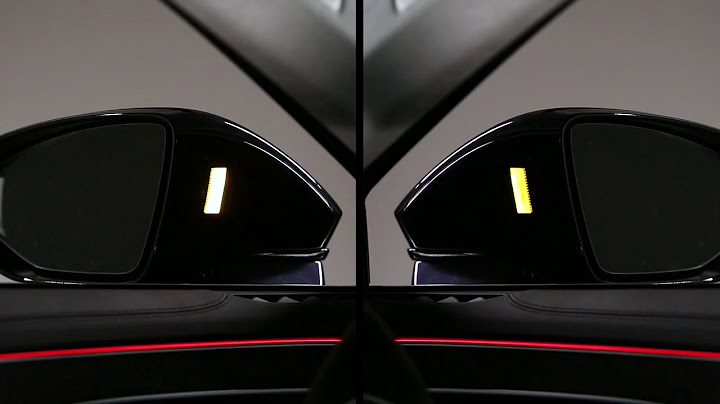What to look out for if you think your compressor is faultyEver been disappointed to find that your AC isn’t cooling enough on an already unbearable hot summer day? It happens to the best of us. Fortunately, we know exactly how to fix it the symptoms of a bad air conditioning compressor. Show
Insufficient cooling — among various other things — is a key indicator that something is wrong in your car’s air conditioning system. While it’s frustrating and annoying for you, fortunately, it is a problem that a Natrad technician can help sort out for you. There are plenty of components in your air conditioning system, so if you want to know how to pick the culprit, read on to find out. Natrad workshops are a part of Australia’s largest network of cooling specialists. With vast industry experience in cooling and air conditioning, Natrad can help you determine problems with A/C compressors efficiently. Symptoms of a failing A/C compressorLet’s understand the reason you’re here — symptoms of a failing car air conditioning compressors. Compressors generally last the lifetime of a car, or approximately 12 to 15+ years depending on how well the car is looked after. In saying that, it’s important that you regularly check up on and service your car to prevent premature failure. Some ways you can tell if something is failing can include:
We’ll outline what these things might indicate a little bit later, but first what actually is a compressor and how does it work? What is this thing?A compressor is a key component of the air conditioning system and without it, your car’s air conditioning wouldn’t be able to function. It’s also the only moving part within the A/C system since it’s connected to the crankshaft via a drive belt. Meaning it derives its power directly from the engine unlike other aircon system components. Given this factor, it’s important to check up on the compressor often as it can be subject to more wear and tear. What does a compressor do?The compressor is a part of the high pressure side of the A/C system, which converts refrigerant gas to liquid as it passes through the condenser. The compressor does exactly what it sounds like, it compresses the refrigerant gas which then makes it very hot. This is passed onto the condenser which cools the gas, converts it to liquid and circulates it to the receiver drier and expansion valve. From here it enters the evaporator, where it is exposed to warmth from air in the cabin and turns back to gas. As the name suggests, it ‘evaporates’ and as a result becomes very cold. This cold is conducted through the metal tubes and fins of the evaporator to deliver cool, dry air into the cabin as dictated by the blower fan. As you can probably tell by now, the compressor is an essential part of this process. Key indicators of compressor failure
 We mentioned above some typical symptoms of compressor failure, but what do they mean and how do they happen? Leaks — often mean that refrigerant will be escaping the system somewhere along the line. Compressor leaks typically happen around the shaft seal, hoses, O-rings and gaskets. They can be hard to spot and might require the use of a special UV dye or electronic leak detector to locate. The refrigerant also carries an oil mist that circulates to keep everything lubricated. Without enough refrigerant, the aircon cycle will not happen and can result in damage to other parts, not just the compressor. Odd noises — there could be a few reasons for this one. Either internal parts of the compressor have failed which can result in some unpleasant sounds, or something has seized. The compressor clutch or belt pulley is likely here. No cool air — likely due to lack of refrigerant or a failing component, the compressor can’t circulate enough refrigerant to keep the system running smoothly. ECU error — if you get a check engine light on your dash, this is a definite sign something more sinister is lurking. The ECU measures voltage signals to parts like the compressor, and can detect malfunctioning signals which might result in incorrect voltage delivery. Some common causes of failure are:
What happens when the car aircon compressor fails?When the refrigerant gas doesn’t get compressed at the air con compressor, the condenser can’t do its job of turning the gas into a liquid. Inside the car, you’ll notice that the air isn’t blowing as cool as it should. When the car aircon compressor fails, it can send debris throughout the car’s air conditioning system, resulting in potentially expensive repairs. Diagnosing an air-con compressor issue and getting it fixed early can minimise the outlay to get your car air con working again. Here are the steps to take to determine if your car air con compressor needs replacing: 4 steps to diagnose a car aircon compressor problem:Step 1: With the engine running, turn on the A/C onto high. This will cause the car air con to start up, activating the aircon compressor. The car aircon compressor will suck refrigerant in from the evaporator under low pressure, compress the refrigerant and forward it to the condenser under high temperature and high pressure. Step 2: Listen for any unusual noises. Unusual noises can arise in a number of ways, so check the following before concluding that you need a new car air con compressor.
If none of these are causing the unusual noise, it’s best to get the vehicle checked out by a Natrad technician. The noise could be caused by excessive high pressure in the system or contamination of the air conditioner refrigerant. These issues need to be diagnosed by a licensed air con technician. Step 3: Check to see if cool air comes from the air vents. If there isn’t cool air coming from the vents, there are a few checks you can start with to rule out a compressor issue:
Step 4: Check for a visible leak under the car.
 If you do have a leak or you rule out the above possible issues, you’ll need to take your vehicle to a licensed repair technician who will test the system to diagnose the problem. Compressor repairs and replacementThis is where Natrad’s highly cost-effective solution comes into place. Natrad offers a range of A/C compressor kits which includes all the major components needed to restore the A/C system back to new. This kit includes a 3-year Nationwide Warranty for your peace of mind. A failed compressor cannot be repaired easily so it must be replaced. Frequent failure could indicate something else inside the air conditioning system –which is a closed circuit–has gone awry. If you’ve noticed something is not quite right and suspect your compressor is at fault, contact Natrad today for specialist advice and quality parts. Can you fix a compressor on a car?In some instances, AC compressors can be repaired. However, it is most often a better procedure to replace the faulty compressor with a new one. It is not only the most time-effective solution to the problem, but it will also most often result in a better, more durable repair.
How much does it cost to fix a air compressor in a car?The average cost to replace a car a/c compressor is around $1,100—your mechanic isn't far off the mark. The cost of parts and labor can vary greatly depending on where you live. On average, the labor cost can run between $160 and $200, with the parts costing between $650 and $840.
Can I fix my car AC compressor myself?Typically, replacing a compressor should be done by a professional, but you can perform this task at home if you are competent working with your hands. Doing the job yourself can also save you a decent amount of money.
What causes an AC compressor to stop working in a car?Reason: it may be due to a lack of refrigerant, a clogged expansion tube or refrigerant charging hose, a broken compressor, broken blower motor, damaged condenser or evaporator, or a failed fuse or switch. This symptom may need small maintenance or a major repair, depending on what's causing it.
|

Related Posts
Advertising
LATEST NEWS
Advertising
Populer
Advertising
About

Copyright © 2024 chuyencu Inc.
















